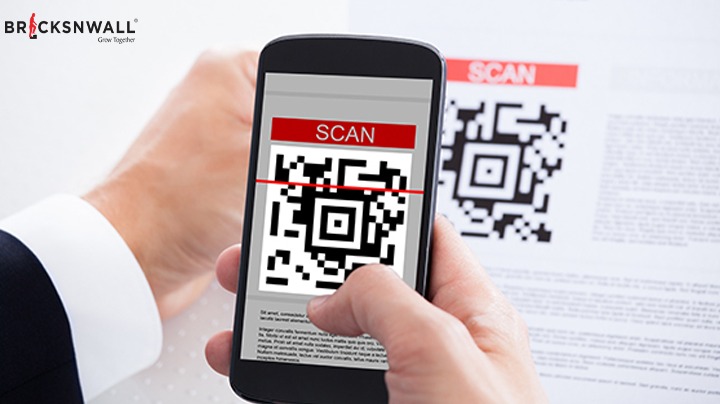QR Code Scams on Online Portals : Check Guide
Bricksnwall Trusted Experts

In recent years, QR codes have grown to be
ubiquitous in our day-to-day lives. These black-and-white designs are viewed
through the use of a telephone camera and take us to numerous websites, free
gateways, and online platforms. While QR codes provide comfort and
accessibility, they have also come to be a goal for fraudsters and
cybercriminals trying to take advantage of unsuspecting individuals.
In this blog, we will discover the arena of QR code
fraud in online social networking websites, understand how it works, sufferers
of these fraudulent schemes, and discover ways to shield ourselves from what
happens.
Understanding QR code scams
QR code fraud is a type of phishing attack, where
cybercriminals use fraudulent QR codes to redirect users to malicious websites
or fraudulent charge strategies. The concept at the back of this rip-off is to
borrow private statistics, touchy records, and even cash from unsuspecting
victims. Criminals regularly cleverly entice users to test these codes with
enticements, reductions, or bogus rewards.
How QR Code Scams Work on Fake Websites:
Scammers create QR codes that lead to faux websites
that closely mimic valid ones. These websites might also activate customers to
go into private information or login credentials, which might be then harvested
via the scammers for malicious purposes.
Malware Distribution:
QR codes can also be used to distribute malware or malicious software. When
scanned, the code may lead customers to a website that automatically downloads
malware onto their gadgets, compromising their safety and privacy.
Payment Scams: Cybercriminals
may additionally use QR codes to install fake fee gateways. When scanned, users
are redirected to a fraudulent fee page, tricking them into making payments
that move without delay into the scammer's account.
Phishing Attacks: Some QR code scams contain
phishing assaults, in which customers are directed to an internet site that
requests touchy information, which includes credit score card information,
passwords, or social security numbers.
Protecting Yourself from QR Code Scams
While QR code scams can be hard to detect, there
are numerous precautions you could take to defend yourself from falling victim
to those fraudulent schemes: Verify the Source: Before scanning a QR code,
constantly verify the source. Check if the code is from a good and honest
website or business. Be careful of QR codes received via unsolicited emails,
messages, or social media posts.
Use a QR Code Scanner App: Instead of using the
default camera app to experiment with QR codes, bear in mind the usage of a dependent
QR code scanner app from a reputable developer. These apps regularly have
integrated protection features to come across and block malicious QR codes.
Avoid Suspicious QR Codes: Be cautious of QR codes
that offer unbelievable discounts, prizes, or rewards. If something appears too
suitable to be true, it in all likelihood is. Double-Check URLs: When a QR code
ends on an internet site, take a second to double-check the URL. Scammers
regularly create faux URLs that closely resemble valid ones.
Update Your Device and Apps: Keep your telephone
and all apps, including the QR code scanner app, updated with the modern-day
software program and security patches.
Conclusion
QR codes have changed the way we communicate with technology and access information. But like any technology, they can be exploited by fraudsters and cybercriminals. By being vigilant, checking as a source of QR codes, and following best security practices, we can protect ourselves from becoming victims of QR code fraud online in the digital age, awareness and caution need to ensure that we safely compromise our security and privacy Without, we can enjoy the convenience and benefits offered by QR code.




